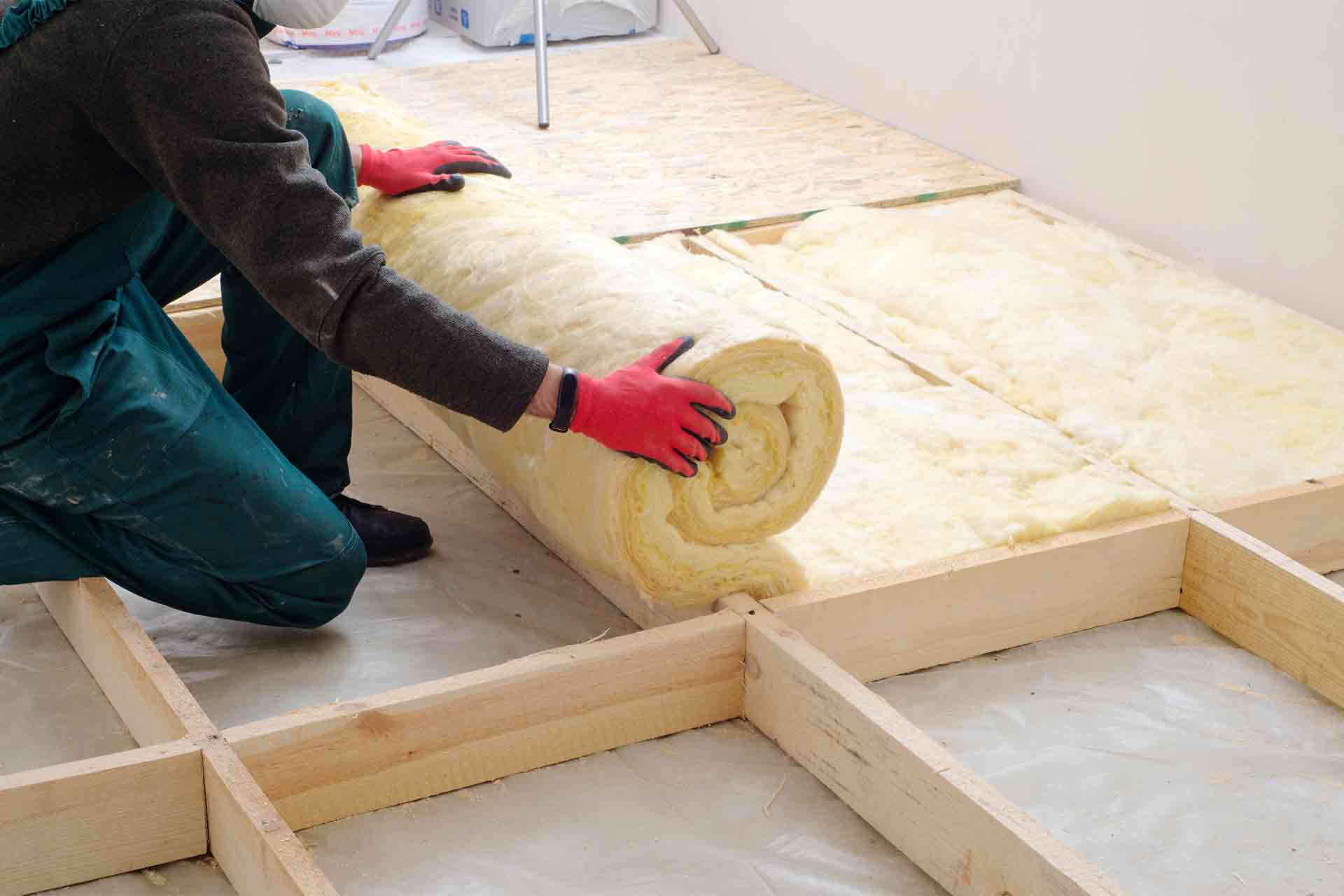Home>Home Maintenance>How Much Do Home Repair Contractors Charge


Home Maintenance
How Much Do Home Repair Contractors Charge
Modified: March 6, 2024
Looking for home repair contractors? Find out how much they charge for home maintenance projects and get the best quotes.
(Many of the links in this article redirect to a specific reviewed product. Your purchase of these products through affiliate links helps to generate commission for Storables.com, at no extra cost. Learn more)
Introduction
When it comes to home maintenance and repairs, it’s not uncommon to encounter tasks that are beyond our skill level or require specialized expertise. This is where home repair contractors come in. These professionals are trained and experienced in handling a wide range of home repair projects, from fixing leaky pipes to remodeling kitchens.
However, one of the common concerns homeowners face when considering hiring a home repair contractor is the cost. How much do these contractors charge for their services? The answer to this question can vary widely depending on several factors, including the type and complexity of the project, the contractor’s experience and reputation, and the region in which you live.
In this article, we will explore the factors that can affect a home repair contractor’s charges, the average cost of common home repair services, additional factors that may impact pricing, how to find and choose the right contractor, negotiating and managing costs, and tips for saving money on home repair projects.
By understanding how home repair contractors determine their charges and how you can navigate the pricing landscape, you can make informed decisions about your home maintenance needs while staying within your budget. So let’s dive in and find out just how much home repair contractors charge.
Key Takeaways:
- Home repair contractor charges vary based on project complexity, materials, labor, experience, location, and demand. Understanding these factors helps homeowners budget effectively and negotiate fair estimates.
- To save money on home repair projects, homeowners can research, get multiple quotes, prioritize essential repairs, and consider DIY options. Balancing cost savings with quality ensures successful and budget-friendly home maintenance.
Read more: What Is A Plumbing Contractor
Factors Affecting Home Repair Contractor Charges
Home repair contractor charges can vary based on a variety of factors. Understanding these factors will give you insight into why contractors charge the rates they do and help you better evaluate the estimates you receive for your projects. Here are some key factors that can influence home repair contractor charges:
- 1. Project Complexity: The complexity of the project plays a significant role in determining the contractor’s charges. Projects that require specialized skills, advanced equipment, or extensive labor will generally come with higher costs. For example, a simple bathroom faucet replacement will likely cost less than a complete bathroom remodel.
- 2. Materials and Supplies: The materials and supplies needed for the project can greatly impact the overall cost. High-quality materials and specialized tools or equipment may come at a premium price. It’s essential to discuss the options with your contractor to strike a balance between quality and cost.
- 3. Time and Labor: The amount of time and labor required for a project will directly affect the contractor’s charges. Projects that require more manpower or longer hours will naturally have higher costs. Additionally, if the contractor needs to bring in subcontractors or additional workers, it can increase the overall expenses.
- 4. Contractor’s Experience and Reputation: Contractors with years of experience and a solid reputation in the industry often command higher rates. Their expertise and track record justify the higher charges, as they bring a level of skill, knowledge, and professionalism that can result in higher-quality work and a smoother project experience.
- 5. Geographic Location: Home repair contractor charges can vary significantly depending on your geographical location. Factors such as regional labor costs, competition among contractors, and local building codes and regulations can influence pricing. In areas with a high demand for contractors or with a higher cost of living, you can expect prices to be on the higher side.
- 6. Market Demand: The demand for home repair contractors in your area can sway pricing. During peak seasons or when there is a surge in demand for contractors, prices may rise due to limited availability. On the other hand, during slower periods, contractors might offer discounted rates or be more flexible with pricing to secure projects.
By considering these factors, you will have a better understanding of why home repair contractor charges can vary. It’s important to assess the specific requirements of your project and communicate your budget and expectations clearly with potential contractors to ensure a fair and accurate estimate.
Average Cost of Common Home Repair Services
Understanding the average cost of common home repair services can give you a general idea of what to expect when hiring a contractor. Please note that these figures are only rough estimates and can vary based on the factors mentioned earlier.
- 1. Plumbing Repairs: Plumbing repairs are common in homes, ranging from fixing leaky faucets to repairing burst pipes. On average, minor plumbing repairs can cost between $100 to $250, while more extensive repairs or replacements can range from $500 to $1,000 or more.
- 2. Electrical Repairs: Electrical repairs encompass a wide range of tasks, such as fixing faulty wiring, installing new outlets, or troubleshooting electrical issues. The cost of electrical repairs can range from $150 to $500 for minor repairs, while more complex projects or panel upgrades can cost up to $1,500 or more.
- 3. Roof Repairs: Roof repairs can vary greatly depending on the extent of the damage and the type of roofing material. Minor repairs, such as fixing leaks or replacing a few damaged shingles, can cost between $200 to $500. However, major repairs, such as replacing large sections of the roof, can range from $1,000 to $5,000 or more.
- 4. Painting Services: Painting is a common home improvement project and can vary in cost based on the size of the area, the type of paint, and any additional preparation work required. On average, homeowners can expect to pay between $300 to $1,500 for painting a single room, while whole-house painting projects can range from $2,000 to $5,000 or more.
- 5. HVAC Repairs: HVAC repairs, including repairing or replacing a malfunctioning furnace or air conditioning unit, are essential for maintaining a comfortable home environment. Minor HVAC repairs can cost between $100 to $500, while more significant repairs or system replacements can range from $1,000 to $5,000 or more, depending on the size and complexity of the system.
- 6. Window and Door Repairs: Window and door repairs can involve fixing broken glass, repairing faulty hinges, or replacing damaged frames. On average, homeowners can expect to pay between $100 to $500 for minor window or door repairs. However, more extensive repairs or replacements can range from $500 to $1,000 or more per window or door.
Keep in mind that these are just rough estimates, and the actual cost can vary based on the specific requirements of your project, location, and contractor pricing. It’s recommended to get multiple quotes and thoroughly discuss your needs with potential contractors to ensure an accurate and fair estimate.
Additional Factors That May Impact Pricing
In addition to the factors mentioned earlier, there are several other elements that can impact the pricing of home repair services. These factors can further influence the total cost of your project. Let’s take a look at some of these additional factors:
- 1. Urgency of the Project: If you require immediate or emergency repairs, the contractor may charge a premium for providing expedited services. This is especially true for after-hours or weekend repairs, where contractors may have to adjust their schedules to accommodate your needs.
- 2. Permits and Licenses: Certain home repair projects may require permits or licenses, especially for tasks involving electrical or plumbing work. The cost of obtaining these permits and licenses can vary depending on your location. Contractors may include these costs in their estimates or charge them separately.
- 3. Accessibility of the Site: The accessibility of the repair site can also impact pricing. If the project requires contractors to work in tight or hard-to-reach spaces, additional time and effort may be needed, potentially increasing the overall cost. Similarly, if special equipment or tools are required to reach the site, it may also impact pricing.
- 4. Scope of Work: The scope of work involved in your project can greatly affect pricing. Contractors will consider factors such as the size of the area to be repaired, the complexity of the task, and the specific materials and tools needed. Larger projects or those requiring extensive demolition and reconstruction will generally come with higher costs.
- 5. Contractor’s Overhead Expenses: Home repair contractors have various overhead expenses, such as insurance, permits, tools, and equipment maintenance. These expenses are typically factored into the overall pricing of their services. Contractors with higher overhead costs may need to charge more to cover these expenses.
- 6. Reputation and Demand: Established contractors with a strong reputation and high demand for their services may charge higher rates. Their expertise and track record can justify the higher costs, as homeowners often prioritize quality and reliability when hiring contractors for their home repairs.
It’s vital to discuss these additional factors with your chosen contractor and clarify how they may impact the final pricing of your project. By having open and transparent communication, you can avoid any surprises and ensure that there are no misunderstandings regarding the scope and cost of the work to be done.
When hiring a home repair contractor, always get multiple quotes to compare prices. Be sure to ask about any additional fees or potential extra costs that may arise during the project.
How to Find and Choose the Right Home Repair Contractor
Choosing the right home repair contractor is crucial for the success of your project. Here are some steps to help you find and select the best contractor for your needs:
- 1. Seek Recommendations: Start by asking friends, family, and neighbors for recommendations. Word-of-mouth referrals are often a reliable source of finding trustworthy and skilled contractors. You can also consider reaching out to local home improvement stores or online community forums for suggestions.
- 2. Research Online: Conduct online research to find reputable contractors in your area. Look for contractors who specialize in the type of repair work you need. Read customer reviews, check their ratings on reliable review websites, and browse their websites to get a sense of their experience and expertise.
- 3. Verify Credentials: Ensure that the contractors you are considering have the necessary licenses, certifications, and insurance. This will protect you from potential liability and ensure that the contractor meets industry standards and requirements.
- 4. Obtain Multiple Quotes: Contact several contractors and request detailed quotes for your project. Make sure the quotes include a breakdown of the costs, materials, and timelines. This will allow you to compare the prices and services offered by different contractors and make an informed decision.
- 5. Check References: Request references from the contractors and follow up with them. Ask previous clients about their experience working with the contractor, the quality of the work, and if they were satisfied with the results. This will give you valuable insights into the contractor’s professionalism and reliability.
- 6. Interview the Contractors: Set up interviews with the contractors you are considering. Use this opportunity to discuss your project in detail. Ask about their experience, their approach to handling similar projects, and how they handle any potential challenges. A face-to-face meeting can help you gauge their communication skills and determine if they are a good fit for your needs.
- 7. Review Contracts Carefully: Before making your final decision, review the contracts from the potential contractors. Pay close attention to the terms and conditions, payment schedules, warranties, and any clauses related to changes or delays in the project. Seek clarification on anything you don’t understand and ensure that you are comfortable with all the contract terms.
- 8. Trust Your Instincts: Ultimately, trust your instincts when choosing a home repair contractor. Consider their professionalism, responsiveness, and how well they understand your needs. If something feels off or you have concerns, it’s best to explore other options.
Remember, finding the right home repair contractor is an important part of ensuring the success and satisfaction of your project. By following these steps, doing your due diligence, and trusting your judgment, you can find a contractor who is reliable, skilled, and suited to your specific repair needs.
Negotiating and Managing Costs with Home Repair Contractors
When it comes to home repair projects, negotiating and managing costs with contractors is a crucial step in ensuring that you stay within your budget. Here are some tips to help you effectively negotiate and manage costs with home repair contractors:
- 1. Obtain Multiple Quotes: Request quotes from multiple contractors to compare prices and services. This will give you an idea of the average cost for your project and leverage in negotiations. Be cautious of extremely low quotes, as they may indicate subpar quality or hidden costs.
- 2. Be Clear About Your Budget: Clearly communicate your budget to the contractor from the beginning. This will help them understand your financial limitations and provide solutions that align with your budget. A reputable contractor will work with you to find cost-effective options without compromising the quality of the work.
- 3. Prioritize Your Needs: Identify your priorities and must-haves for the project. If certain aspects of the project are non-negotiable, let the contractor know. By focusing on what’s most important to you, you can work together to find creative solutions and potentially reduce costs in other areas.
- 4. Discuss Payment Schedule: Clarify the payment schedule with the contractor upfront. Avoid making a large upfront payment and consider setting milestones or progress-based payments. This allows you to ensure that the work is progressing as planned before releasing additional funds. Avoid paying the full amount until the project is completed to your satisfaction.
- 5. Explore Cost-Saving Alternatives: Discuss cost-saving alternatives with the contractor. This could include using more affordable materials, exploring energy-efficient options that may have long-term savings, or repurposing existing materials instead of buying new ones. An experienced contractor can suggest alternative solutions without compromising on quality.
- 6. Request a Detailed Scope of Work: To avoid unexpected costs, request a detailed scope of work from the contractor. This should include all materials, labor, and any additional expenses. Review it carefully and seek clarification on any items that are unclear or appear to be missing. This will help ensure that you and the contractor are on the same page regarding the project’s scope and cost.
- 7. Communicate Changes Promptly: If you decide to make changes or additions to the project scope during its execution, communicate them to the contractor promptly. This allows the contractor to adjust the costs and timeline accordingly. Delayed communication can lead to misunderstandings and added expenses.
- 8. Keep Open Lines of Communication: Maintain open and transparent communication with the contractor throughout the project. Stay updated on the progress, address any concerns promptly, and seek clarification on any cost-related matters. This ensures that everyone is on the same page and can help prevent cost overruns.
- 9. Inspect the Work: Once the project is completed, carefully inspect the work to ensure that it meets your expectations and specifications. If there are any deficiencies or items that need attention, discuss them with the contractor and reach a resolution. Holding back a portion of the payment until all issues are resolved ensures that the contractor addresses any remaining concerns.
Remember, negotiating and managing costs with home repair contractors is a collaborative process. By being proactive, communicative, and clear about your expectations, you can work together to achieve a satisfactory outcome that aligns with your budget and needs.
Tips for Saving Money on Home Repair Projects
Home repair projects can be costly, but there are several strategies you can employ to save money without compromising on quality. Here are some practical tips for saving money on your home repair projects:
- 1. Do Your Research: Take the time to research and educate yourself about the project at hand. Having a good understanding of the repair work allows you to ask informed questions, compare prices more effectively, and make informed decisions.
- 2. Get Multiple Quotes: Obtain quotes from multiple contractors and compare their prices and services. This helps you find the best balance between cost and quality. Remember to consider their experience, reputation, and reviews in addition to the price.
- 3. Consider DIY Options: For smaller, more straightforward projects, consider tackling the repairs yourself if you have the necessary skills. There are numerous tutorials and resources available online that can guide you through the process. However, be realistic about your abilities and know when to call in professional help to avoid costly mistakes.
- 4. Shop Around for Materials: Don’t settle for the first supplier you come across. Take the time to shop around and compare prices for materials. Check local home improvement stores, online marketplaces, and even salvage yards for affordable alternatives without compromising quality.
- 5. Reuse and Recycle Materials: If possible, reuse or repurpose materials you already have. For example, instead of buying new cabinets, consider giving your existing ones a fresh coat of paint or new hardware. Not only does this save money, but it also reduces waste.
- 6. Prioritize Essential Repairs: Identify and prioritize essential repairs over cosmetic enhancements. Focus on projects that ensure the safety, functionality, and structural integrity of your home. Cosmetic upgrades can be done at a later date when you have more financial flexibility.
- 7. Opt for Energy-Efficient Solutions: When replacing appliances or fixtures, opt for energy-efficient options. While they may have a higher upfront cost, they can lead to significant savings on your utility bills in the long run. Look for products with the Energy Star label for maximum energy efficiency.
- 8. Plan Ahead and Time Your Projects: Planning ahead and timing your projects can help you save money. Contractors may offer discounts or lower rates during slower seasons. By scheduling your repairs during these times, you may be able to negotiate better prices.
- 9. Maintain Regular Home Maintenance: Regular maintenance and inspections can help prevent more extensive and costly repairs down the line. Simple tasks like cleaning gutters, sealing cracks, and inspecting for leaks can help catch minor issues before they become major problems.
- 10. Ask for Discounts or Promotions: Don’t be afraid to ask contractors if they offer any discounts, promotions, or package deals. Sometimes, they may be willing to provide a discount if you bundle multiple repairs or refer their services to others.
By implementing these tips, you can make smart choices that save you money on your home repair projects. Remember to balance cost savings with the quality and longevity of the repairs to ensure the best outcome for your home.
Conclusion
Home repair projects are a necessary part of homeownership, but it’s important to understand the factors that impact costs and how to navigate them effectively. By considering the complexity of the project, materials and supplies, time and labor, contractor’s experience, geographic location, and market demand, you can better understand why home repair contractors charge the rates they do.
Furthermore, by gaining insights into the average costs of common home repair services and the additional factors that may impact pricing, you can make informed decisions when it comes to budgeting for your projects. Seeking multiple quotes, verifying credentials, and checking references are crucial steps in finding and choosing the right home repair contractor for your needs.
When it comes to negotiating and managing costs, clear communication, setting a budget, and exploring cost-saving alternatives can help you stay within your financial means. Additionally, researching materials, shopping around, and considering DIY options can further help you save money without compromising on quality.
Remember, home repair projects should prioritize safety, functionality, and the structural integrity of your home. By focusing on essential repairs and proper maintenance, you can prevent more costly issues in the future.
In conclusion, understanding the factors that affect home repair contractor charges and implementing strategies to save money can help you navigate the world of home maintenance and repairs more effectively. By being informed, proactive, and resourceful, you can strike a balance between quality work and budget-friendly solutions for your home repair projects.
Frequently Asked Questions about How Much Do Home Repair Contractors Charge
Was this page helpful?
At Storables.com, we guarantee accurate and reliable information. Our content, validated by Expert Board Contributors, is crafted following stringent Editorial Policies. We're committed to providing you with well-researched, expert-backed insights for all your informational needs.














